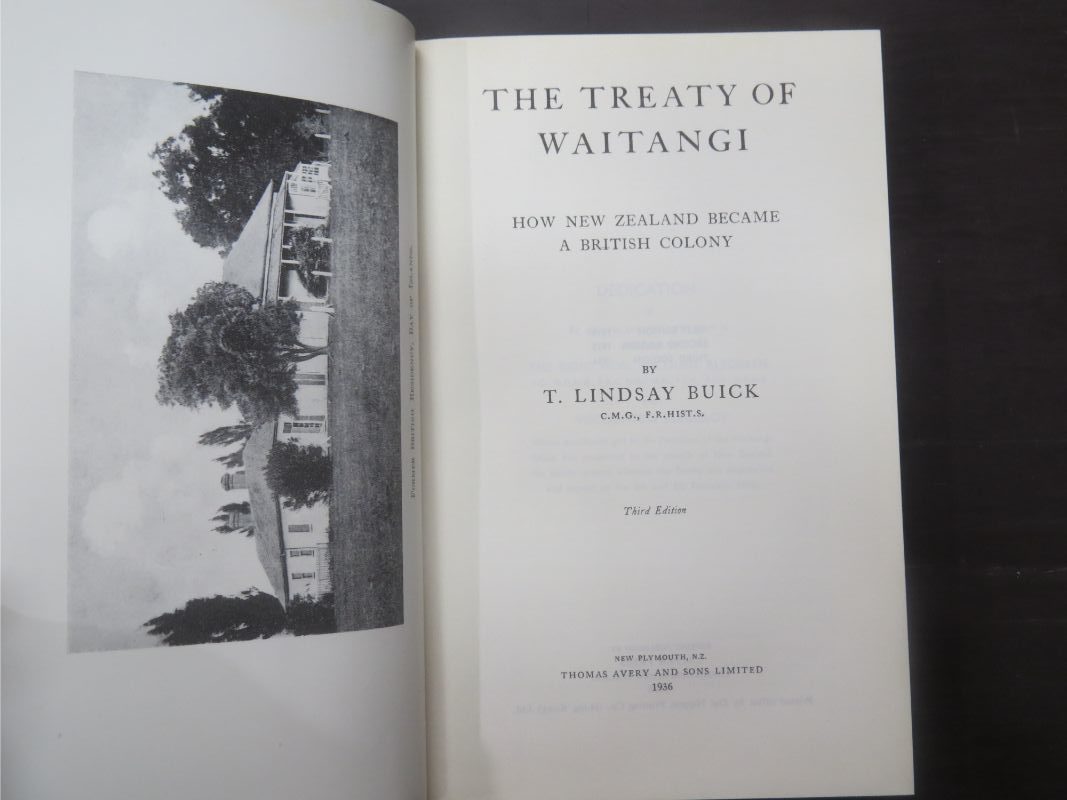Free to Speak
I am sick of the revisionist history in this country, which one cannot challenge without being labelled.
I read a superb book, written at the end of living memory of the Treaty signing, by T Lindsay Buick, called ‘The Treaty of Waitangi (how New Zealand became a British Colony)’, first published from memory in 1914. I think it should be compulsory reading for all New Zealanders.
Basically there were missionaries, a few farmers and merchants and a whole lot of lawless scumbags in New Zealand prior to 1840. Quite a few of the scumbags were hiding from the very long arm of the British law, which had no actual jurisdiction on New Zealand. Busby had no power. The French were sniffing around as potential colonial masters, and Pompallier was the French Catholic missionary in Russell.
Several very astute Maori chiefs had visited England, from about 1820 onwards, and could see what Britain had to offer. They were not naive natives who didn’t understand what was going on. The British Colonial Office had enough on its hands at the time and did not want any more colonies. That is very clear.
However, due to the lawlessness of the dregs of society hiding in New Zealand, the kidnapping of Maori as ships’ crews, etc, some of the chiefs and law-abiding settlers petitioned the Colonial Office for a treaty, to come under the lawful control of Britain and to have some law and order. The chiefs in Northland knew what they were doing and were also very aware of the French ambitions. The chiefs actively chose Britain as the power they appealed to for a treaty. It was with reluctance that the Colonial Office agreed. They were not actually keen.
It is my personal opinion that Williams’s translation has a lot to answer for, and Colenso disagrees with the way Williams was translating. But in the social hierarchy of the day, Williams was a churchman and Colenso only the printer, so he kept quiet. Williams had his own agenda — he had ‘acquired’ significant land inland around the Waimate area prior to the treaty and was worried this deal would be unpicked, as all pre-Treaty purchases were being considered for annulment. Williams is on record as saying something along the lines of (paraphrase as I don’t have the reference at the moment) ‘I have 6 or 7 children – how am I to provide for them if my land is taken away from me?’ So his translation was all skewed towards maintaining title over ‘his’ land, and Colenso disputed it.
I think the treaty was signed with the best of intentions, having read a lot of the briefing material that was sent out by ship to Sydney from the Colonial Office to instruct Hobson ‘how to treat with the natives’. I have read this material, it was the time of enlightenment, and the intentions were good. It is a shame, given the extent of Hobson’s briefing material, that the treaty is so brief and seemingly open to perpetual re-invention. It is actually three very simple phrases.
The real trouble started 3-5 years after the treaty – there was a change in government in Britain shortly after the treaty was signed, and the new lot were not as honourable. This allowed the land disputes that seem to have started in about 1845.
Anyway, Waitangi Day should be a day of great celebration, but the ongoing grievances of people like Pania Newton, who have had free education, healthcare, roads, law and order, and whose ancestors will be Maori and Pakeha, but who cannot see all the benefit that has flowed from the treaty, ruin it.
The early chiefs were wise men, they knew which way the wind blew, they had visited England, they did not court the French, and they knew that once two cultures had collided that Time could never be wound back and they had to deal with what they had. Hence the petitioning of a reluctant Britain to become a colony.
If you enjoyed this BFD article please consider sharing it with your friends.

